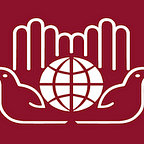Drawing a Link Between Climate Change, Migration, and Human Rights: An Analysis of the UN Special Rapporteur Report
“A Colussus that threatens our world.” “The ultimate challenge to economics.” An existential threat that, if ignored, “would be a great injustice toward the poor and future generations.”
These are only a few of the cynical perspectives presented in a recent report by the United Nations Special Rapporteur on extreme poverty and human rights, Philip Alston. The report highlights the scale of the challenge that climate change presents to society, particularly its impact on poverty, inequality, and forced migration. In addition to recognizing the current and potential consequences of climate change, the report analyzes the lack of effective governance and implementation of efforts to mitigate climate change. The report draws a nuanced link and causal relationship between poverty and inequality with climate change.
In short, climate change is actively reshaping patterns of migration and displacement while disproportionately impacting vulnerable communities and marginalized groups across the globe. Environmental degradation is not always the sole factor of migration and links to other catalysts as well. Often, poverty and the desire for a stronger and more economically sustainable life are the drivers of displacement. According to Norman Myers, “people who migrate because they suffer poverty are frequently driven by root factors of environmental degradation; indeed, it is their environmental plight as much as any other factor that makes them economically impoverished.” This complex relationship can be challenging to navigate and comprehend. Nevertheless, environmental degradation is identifiable as a significant catalyst for poverty and forced migration. This issue and the current scale of climate-related migration is both fascinating and distressing.
The UN Special Rapporteur’s report highlights several of the critical themes of the growing discourse on climate change: impacts on poverty, inequality, migration, projected warmth and its consequences, inadequate government response, and more. The report offers a stunning claim that climate change is a serious threat to the progress of development and health that has occurred over the past fifty years. As climate change worsens, which it inevitably will unless there is a massive societal transformation and reduction in world energy consumption, food insecurity, forced migration and disease will rise.
According to the report, at 2 degrees Celsius, “100–400 million more people could be at risk of hunger and 1–2 billion people may no longer have adequate water.” Additionally, by 2050, there could be nearly a quarter of a billion additional deaths due to communicable diseases, such as malaria and diarrhea. Estimates expect that a mass number of people will be forced to migrate due to climate change impacts by the middle of the 21st century, ranging from 250 million to a billion people by the middle of the 21st century. The most disturbing aspect of these trends is that developing countries will suffer a majority of these costs, while developed countries have disproportionately caused many of these issues and are more able to adapt. Climate change is considered by many as an unprecedented emergency that threatens human rights, particularly the right to life for vulnerable communities.
Although the impacts of climate change are increasingly more apparent and compounded with evidence that suggests there will be mass consequences, the international community still fails to address this topic. Climate-related language is written in many official reports of the United Nations and participating governments, as well as in the human rights community, yet it largely remains a marginal concern with inadequate investment and advocacy. Much of this trend is rooted in the fact that the international community operates largely to support its political interest in trade and security rather than over sustainability and human rights. This point is an unfortunate reality because the world order, as we know it, is in grave danger as severe weather patterns are expected to intensify as climate change worsens. When these patterns affect a community, residents will have a choice of three options. First, stay in place and do nothing, accepting the costs of environmental change. Second, they can choose to stay in place and attempt to mitigate changes. Or, third, a resident can leave the affected area, thus, becoming a migrant.
These decisions are where humans’ climate-related migratory journey begins. As fundamental human rights, like the right to life and water, are threatened by environmental degradation, and other factors, individuals will be forced to migrate. Due to a lack of appropriate measures by the international community to address the humanitarian crisis that is evident in the discourse on climate change and migration, those displaced by environmental degradation exist in a state of legal limbo. To understand the humanitarian crisis that climate change creates, particularly with respect to migration, one must understand the complexities of legally recognized refugee status and how climate-related migrants do and do not qualify for such status.
The international community is inadequately investing in climate mitigation and, with strict legal stipulations, fails to recognize those internationally displaced by climate change. Much of the climate change regime fixates on mitigation, conservation, and renewable energy which blinds the world to the human collateral experienced by those living through climate change on an everyday basis. Forced migration, one of the most pressing climate emergencies, thus deserves a more significant investigation on its implications on human rights.
Written By Charles Beauregard, Refuge Press Intern, Summer 2019
About the IIHA
The Institute of International Humanitarian Affairs (IIHA) prepares current and future aid workers with the knowledge and skills needed to respond effectively in times of humanitarian crisis and disaster. Our courses are borne of an interdisciplinary curriculum that combines academic theory with the practical experience of seasoned humanitarian professionals. The IIHA also publishes on a wide range of humanitarian topics and regularly hosts a number of events in the New York area, including the annual Humanitarian Blockchain Summit and Design for Humanity Summit.
For media inquiries, please contact: Camille Giacovas, Communications & Research Officer, IIHA, cgiacovas@fordham.edu
